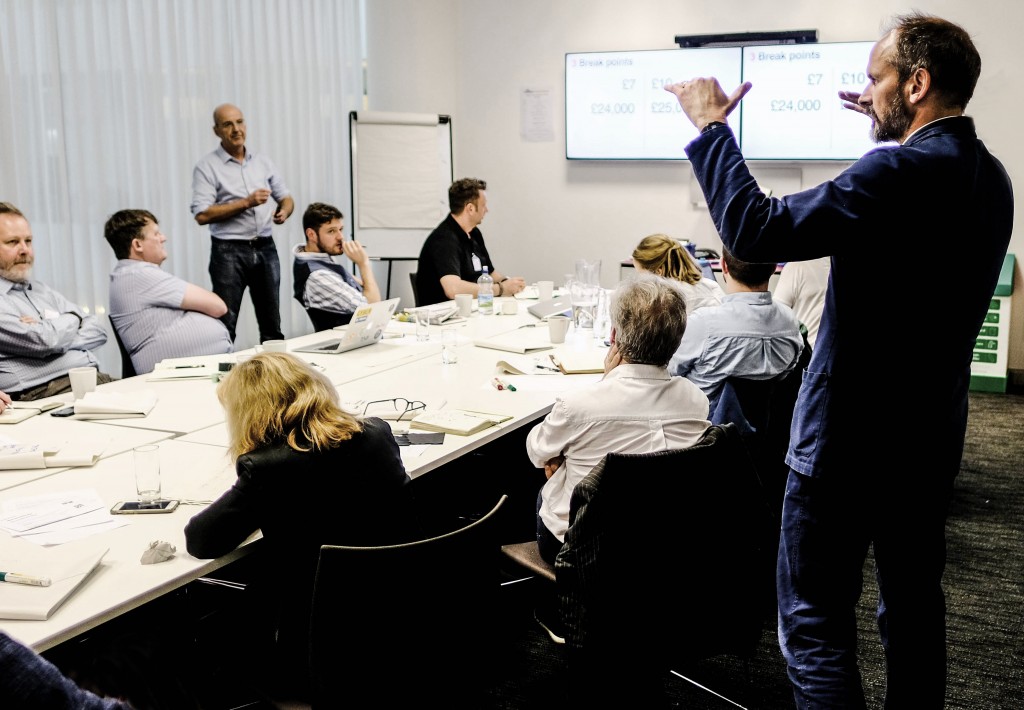Introduction to behavioural economics
Some of the most successful businesses implement behavioural economics techniques across many projects including sales, design and customer retention to meet their objectives. They demonstrate the effectiveness and return on investment of interventions by testing and measuring their impacts.
Covering topics such as irrationality, misbehaviour, scarcity and influence, this highly-interactive course allows delegates to take away techniques that are sure to improve decision making from customers, colleagues and stakeholders.
Behavioural economics expert, Andy Pemberton, will guide delegates through key behavioural economics methodologies and ensure that those attending leave the day with an action plan to implement key techniques into their business.
About the Trainer: Andy Pemberton
Andy Pemberton is a content expert with international experience. He edited Q magazine in London; launched Blender magazine in New York, which won Ad Age’s Launch of the Year; and edited Spin magazine. He has written for the New York Times, GQ, Esquire, Sunday Times, The National (Dubai) and the world’s largest newspaper, Times of India. He writes columns for Yahoo.com and the US Huffington Post, and trains social media, data visualisation and content strategy. He has worked as a content consultant for the RNLI, Time Out, BT and more. As a leading data visualisation expert he includes the UN, the World Food Programme and Aviva among his clients. He is a judge at this year’s British Media Awards.
Agenda
09:15 - 09:45
Registration and Morning Refreshments
09:45 - 10:00
Trainer’s Welcome and Learning Objectives
10:00 - 10:30
Getting People to Do Things They Don’t Want to Do
Fundamentals of behavioural economics and how this impacts our working lives
Discussing human behaviour: expectation vs. reality
Reviewing common examples of behavioural economics both in and out of work
10:30 - 11:15
Being Irrational: Are You Predictable or Exuberant?
Why do smart people make bad decisions? Looking at the ways in which irrationality influences decision-making
How expectations influence our opinions and decisions
Delegates with conduct ‘experiments’ such as the Irrationality Game to understand why people are irrational and how to measure it
11:15 - 11:30
Morning Break
11:30 - 12:15
WORKSHOP: The Benefits of Misbehaving
Can bad behaviour benefit your team?
Discussing how listing benefits often isn’t enough to motivate people to complete a task or develop positive behaviours
Playing it Unsafe: The case for incentivising risk-takers
Framing failure being as important as success
Delegates will create a list of hypothetical situations where misbehaviour could be beneficial in their workplace
12:15 - 13:00
WORKSHOP: Nudge Theory – Getting People to Do Things Without Them Knowing That They’re Doing It
Brief overview of Nudge Theory and how it can subtly impact people’s behaviour
Opt-in vs. Opt-out: Which protects people more? How can these be applied in an everyday workplace culture?
The ethics of nudge
Reviewing real-life case studies
Delegate will be invited to engage in a scenario and suggest nudge principles in achieving mutually beneficial outcomes
13:00 - 14:00
Lunch Break
14:30 - 15:00
Why Having Too Little Means So Much
Delving into the topic of scarcity and how it is just another tool to be utilised, rather than a concept to be feared
How to perfectly balance the impulses of heart and head: It doesn’t have to be a battle
Making the leap from the personal to the universal: Analysing ‘what’s good for me is also good for everyone’
Real-life applications of scarcity, how to leverage it, create it and make people comfortable with it
15:00 - 16:00
WORKSHOP: The Science and Practice of Influence
Widening your arsenal: It’s not just about compliance
Discussing the key tenants of influence, such as:
Behaviour
Reciprocity
Consistency
Social Proof
Likeability
Authority
Delegates will audit their own current influence and 3 ways in which they can improve their influence, when returning to work
16:00 - 16:15
Creating you ‘Behavioural Toolkit’
Delegates will be invited to reflect upon the day’s learning and create a bespoke toolkit of the key behavioural techniques, that they can apply in their individual workplace or working-life.
16:15 - 16:20
Feedback and Close
